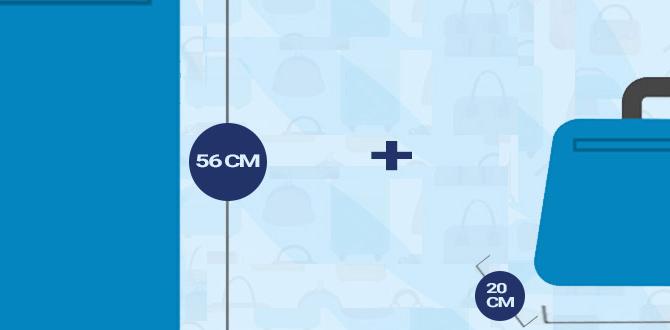Adelaide safety against scams means staying aware of common trickery, verifying unexpected offers, protecting personal info, and reporting suspicious activity. Be skeptical of deals too good to be true and always confirm identities before acting. Staying informed is your best defense.
Exploring Adelaide, from its charming laneways to its stunning natural beauty, should be an exciting adventure. However, like any popular destination, it’s wise to be prepared for potential pitfalls. Scams can unfortunately target both locals and tourists, causing distress and financial loss.
But don’t let that dampen your spirit! With a little knowledge and a few simple precautions, you can confidently enjoy everything Adelaide has to offer, keeping yourself and your belongings safe. This guide is packed with proven tips to help you spot and avoid common scams, ensuring your journey is just as smooth as you planned.
Understanding the Landscape: Common Scams in Adelaide
Scammers are always looking for new ways to trick people, but many common tactics remain popular because they prey on human psychology – often urgency, greed, or a desire to help. Being aware of these common scams is the first step in protecting yourself. Think of it like packing a first-aid kit for your trip; it’s better to have it and not need it.
Phishing and Email Scams
These scams often arrive in your inbox disguised as legitimate messages from banks, government agencies, or well-known companies. They might ask you to “verify” your account details, click a suspicious link to avoid a penalty, or claim you’ve won a prize. The goal is to steal your personal information, like passwords or credit card numbers.
Romance Scams
Often seen online through dating sites or social media, these scammers build emotional connections and trust over time. Once a relationship is established, they invent a crisis or an opportunity that requires financial help. They might ask for money for travel emergencies, medical bills, or business ventures, promising to repay you once they have access to your funds, but they disappear once they receive the money.
Fake Investment Opportunities
These scams promise incredibly high returns with little to no risk. They might involve cryptocurrency, offshore accounts, or exclusive insider trading tips. Scammers create a sense of urgency, pushing potential investors to act quickly before the “opportunity” is gone. Once money is invested, it’s often lost forever.
Impersonation Scams
This is a broad category where someone pretends to be someone they’re not. This could be:
- Tech Support Scams: You receive a call or pop-up warning about your computer having a virus. The “support” asks for remote access to your computer or payment for fake services.
- Government Impersonation: Scammers may pretend to be from the Australian Taxation Office (ATO) or the police, threatening legal action or fines if immediate payment isn’t made.
- Lottery or Prize Scams: You’re told you’ve won a large sum of money or a prize but must pay a fee (like taxes or processing costs) upfront to claim it.
Online Shopping Scams
Be cautious of incredibly low prices for popular items on social media or lesser-known websites. Scammers might advertise products they don’t have, take your money, and send nothing, or send a counterfeit item. Fake reviews and professional-looking websites can make these scams harder to spot.
Job Scams
These often target job seekers. Scammers post fake job ads, sometimes for roles that sound too good to be true (high pay, little work). They might ask for upfront payment for training, equipment, or background checks, or ask for sensitive personal details for “payroll” before any work has begun.
Staying informed about these common tactics is your first layer of defense. The more you know, the less likely you are to fall victim.
Proven Tips for Adelaide Safety Against Scams
Now that we understand some of the threats, let’s dive into practical, easy-to-follow strategies to keep you safe while you’re enjoying Adelaide. These are the go-to moves that will help you navigate potential scams with confidence.
1. Scrutinize Unexpected Communications
If you receive an unsolicited email, text message, or phone call asking for personal information or money, treat it with suspicion. Legitimate organizations rarely ask for sensitive data this way.
- Don’t click links: If an email or text asks you to click a link, don’t. Scammers use these links to lead you to fake websites designed to steal your information or to download malware.
- Verify independently: If the message claims to be from a known company or agency (like your bank or the ATO), don’t use the contact details provided in the message. Instead, find the official contact information from their website or your account statements and call them directly to confirm the legitimacy of the request.
- Be wary of urgency: Scammers often create a sense of panic (“Your account will be closed,” “Face arrest”) to make you act without thinking. Take a deep breath and assess the situation calmly.
2. Protect Your Personal Information
Your personal details are valuable. Treat them with care, both online and in person.
- Guard your passwords: Use strong, unique passwords for different online accounts. Consider a password manager for ease.
- Shred sensitive documents: Before throwing away bills, bank statements, or other documents containing personal information, shred them.
- Be cautious on public Wi-Fi: Avoid entering sensitive information (like bank details) when connected to free Wi-Fi hotspots, as they can be insecure. For secure browsing, consider using a Virtual Private Network (VPN).
- Never share your TFN or bank details unsolicited: Your Tax File Number (TFN) is sensitive. The Australian Taxation Office (ATO) will not ask for it via email or text. Similarly, never give your bank account details to someone who contacted you unexpectedly. You can find more information on protecting your TFN from identity theft on the ATO website.
3. Verify Who You’re Dealing With
This applies to online purchases, job offers, and even people you meet in person or online.
- Research businesses: Before buying online or dealing with a new company, look for online reviews, check their physical address (if applicable), and ensure they have secure payment options (look for “https://” in the web address).
- Vet job offers: If a job offer seems too good to be true, it probably is. Research the company thoroughly. Be suspicious if they ask for money upfront for training, equipment, or to secure the position.
- Don’t send money to people you’ve only met online: Especially if they haven’t met you in person or are asking for money for travel to see you, or for an emergency.
4. Be Skeptical of “Too Good to Be True” Offers
This is a golden rule of scam prevention.
- Unsolicited prizes and lotteries: If you haven’t entered a lottery, you haven’t won it. Legitimate prizes don’t require you to pay fees or taxes upfront.
- Unbelievable investment returns: High returns always come with high risk. Be very wary of anyone promising guaranteed, massive profits with no risk.
- Extreme discounts: While sales are common, items priced at a fraction of their usual cost, especially from unknown sellers, are often a sign of a scam.
5. Use Secure Payment Methods
When making purchases or sending money, opt for secure and traceable methods.
- Credit cards: These often offer more protection against fraud than debit cards or direct bank transfers.
- Secure online payment platforms: Services like PayPal can offer buyer protection.
- Avoid wire transfers and gift cards for payment: Scammers frequently demand payment via wire transfer (like Western Union or MoneyGram) or by purchasing gift cards because these methods are difficult to trace and recover funds from once sent.
6. Trust Your Gut Feeling
If something feels off about a situation, a person, or an offer, it probably is. Don’t be afraid to say “no” or to end a conversation. Your intuition is a powerful tool.
7. Travel Smart: Specific Tips for Tourists
Adelaide is a welcoming city, but travelers can be seen as easy targets. Stay one step ahead with these travel-specific tips:
Accommodation Scams:
- Book accommodation through reputable websites or directly with hotels.
- Be wary of social media ads or private listings offering very cheap accommodation, especially if they request payment via unusual methods or ask for a large deposit before seeing the property.
- Verify the property exists if you’re booking through unofficial channels.
Tour and Activity Scams:
- Book tours and activities through your hotel, official tourist information centers, or well-known tour operators.
- Be cautious of street vendors or unsolicited offers for tours, especially if they pressure you to book immediately.
Transport Scams:
- Use official taxis or ride-sharing apps. Agree on a fare upfront or ensure the meter is running.
- Be suspicious of anyone offering “discounted” transport at the airport or your accommodation; they may be unlicensed or charge inflated prices.
“Friendly Local” Scams:
- While many locals are genuinely helpful, be aware of a scam where someone offers to be your “guide” or “friend” and then pressures you into visiting specific shops where they get a commission, or leads you to expensive, subpar establishments. They might also subtly ask for money or try to sell you fake goods.
- Politely decline unsolicited “help” if it feels intrusive or comes with strings attached.
8. Report Suspicious Activity
If you believe you’ve been targeted by a scam, or you encounter suspicious activity, report it. This helps authorities warn others and build cases against scammers.
- Report to Scamwatch: Operated by the Australian Competition and Consumer Commission (ACCC), Scamwatch is the national repository for scam reports. Reporting helps them track scams and alert the public. Visit www.scamwatch.gov.au to report and find more information.
- Report to the Police: For scams involving significant financial loss or threats, report it to the police, especially if immediate action is needed.
- Report to your bank: If you’ve lost money or shared financial details, inform your bank immediately.
Common Scam Tactics Explained: A Quick Reference
To make it easier to remember, here’s a snapshot of how some common scams work and how to counter them. This can be handy to quickly refresh your memory.
| Scam Type | How it Works | Your Defence | Where to Get Help |
|---|---|---|---|
| Phishing | Fake emails/texts asking for personal info or to click links. | Don’t click links. Verify requests independently. | Scamwatch, Your Bank |
| Romance Scam | Builds trust online, then asks for money during fake emergencies. | Be skeptical of online relationships wanting money. Never send cash. | Scamwatch, Police |
| Investment Scam | Promises impossibly high returns with no risk. | If it sounds too good to be true, it is. Research investments thoroughly. | Scamwatch, ASIC |
| Impersonation (e.g., ATO, Police) | Pretends to be authority, demands immediate payment. | Legitimate agencies won’t threaten or demand instant payment via unusual methods. Hang up and call the official number. | Scamwatch, Police, ATO |
| Online Shopping Scam | Fake ads for popular goods, takes money, sends nothing or fakes. | Buy from reputable sites. Check reviews. Use secure payment. | Scamwatch, Consumer Protection Agencies |
| Job Scam | Fake offers requiring upfront payment or personal data. | Research company. Be wary of upfront fees. Never give TFN/bank details early. | Scamwatch, Fair Work Ombudsman |
Keeping it Simple: Pack Your Scam-Proof Mindset
Think of these tips as essential items in your travel pack, right alongside your comfortable walking shoes and maybe some discreet adult or child diapers for those long journeys or unexpected delays. Just as you prepare for comfort and convenience, preparing your mind against scams adds another crucial layer of safety. It’s not about being fearful, but about being fully prepared and confident.
The “Pause and Verify” Rule
This is perhaps the most powerful tool. If you’re put on the spot, pressured, or feel any doubt: P.A.U.S.E. Then VERIFY. Take a step back, breathe, and find an independent way to confirm the legitimacy of what you’re being asked to do. This simple habit can stop many scams in their tracks.
Digital Hygiene Practices
Just like you’d clean your hands, practice good digital hygiene:
- Keep your devices updated with the latest security patches.
- Use strong, unique passwords and enable two-factor authentication wherever possible.
- Be mindful of what you share on social media – scammers can use this information to make their attacks more convincing.
When Traveling with Dependents
If you’re traveling with children, or if you require personal care items like adult diapers for comfort and peace of mind on long trips, remember that scams can sometimes target family needs. For instance, fake online stores might offer baby gear at unusually low prices, or someone might approach you offering “help” with your children in a way that feels intrusive or suspicious.
Always keep your belongings secure and trust your instincts about people’s intentions. Having reliable products for personal needs, like discreet adult diapers from Journey Essentials, ensures your focus remains on enjoying the trip, not worrying about unexpected needs or discomforts.
Be an Informed Traveler
Before you even arrive in Adelaide, take a few minutes to research common scams specific to Australia or South Australia. Resources like Scamwatch are invaluable. Knowing what to expect empowers you.
Frequently Asked Questions
Q1: How can I tell if an email or text message is a scam?
A1: Scammers often use generic greetings (like “Dear Customer”), create a sense of urgency or threat, contain spelling or grammar errors, ask for sensitive personal information (passwords, credit card numbers), or include suspicious-looking links or attachments. Legitimate organizations usually use your name and won’t ask for this information via email/text or demand immediate action to avoid severe penalties.
Q2: I received a call from someone claiming to be from the ATO demanding immediate payment. What should I do?
A2: This is a very common scam. The Australian Taxation Office (ATO) will not call you demanding immediate payment of tax debts, nor will they ask you to pay via gift cards or cryptocurrency. They will also not threaten you with arrest. Hang up the phone immediately and report the scam to the ATO and Scamwatch. You can contact the ATO directly (using their official phone number from their website) if you genuinely have concerns about your tax affairs.
Q3: What if a stranger offers me a “great deal” on a guided tour or a purchase in the street?
A3: Be very cautious. While many people are honest, scammers may approach you with attractive offers. They might be working with unofficial vendors who provide poor quality goods or overpriced services, or they may attempt to lure you into a situation where they can scam you. It’s safer to book tours and make purchases through reputable sources like your hotel, official tourist information centers, or well-known online platforms.
Q4: I’m worried about online shopping scams. How can I protect myself?
A4: Stick to well-known and reputable online retailers. If you’re considering buying from a new website, do your research. Look for customer reviews (and be wary if there are only perfect ones). Check for a secure website.





